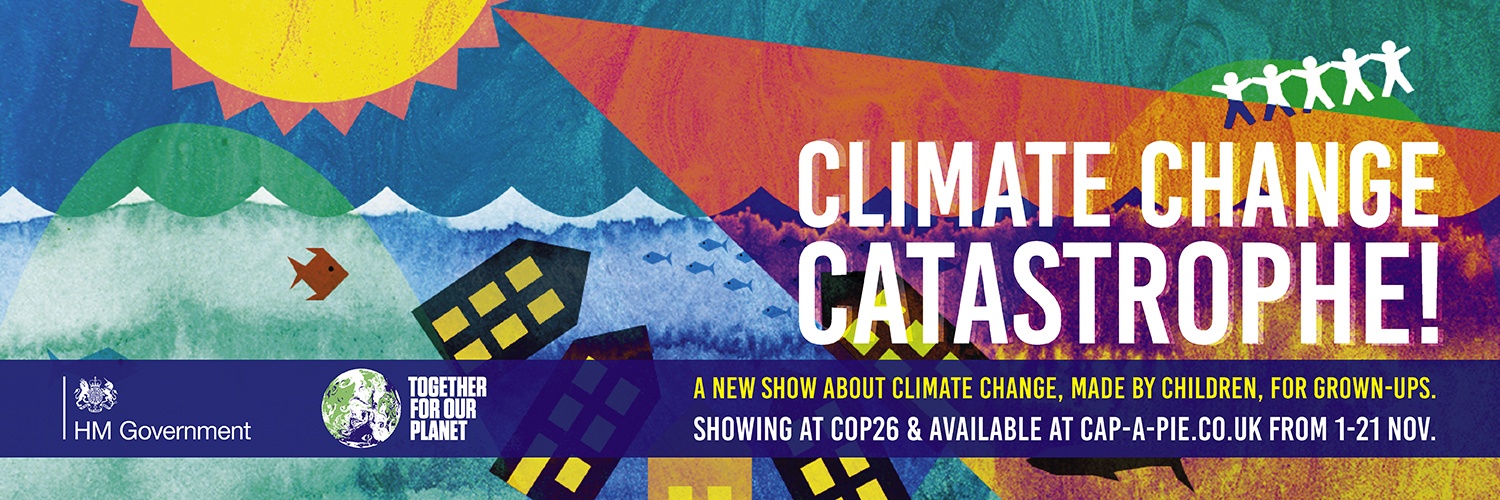Supporting Climate Action
We're helping to shape climate and environmental action.
Tackling the Climate Emergency and Biodiversity Crisis
Climate change, extreme weather and environmental degradation are not threats for the future. These issues matter now.
The CCER is contributing to the northeast’s climate resilience activities and global biodiversity policy. Our team includes globally renowned experts. They are helping to turn policy into practice at all scales.
Sustainable solutions
Newcastle University has always been at the forefront of innovation and action. It has been part of our DNA since we established our medical and physical science roots in the 1800s.
Since then, the University has helped to shape the world we live in. Our researchers have designed and tested many new processes and solutions.
This ethos continues in the fight against climate change and biodiversity loss. We work with external organisations to help shape climate and wider environmental action. We value our partners and the wealth of knowledge and expertise they bring to the climate crisis.
Newcastle University declared a climate emergency in April 2019 that also recognised the urgency of tackling biodiversity loss. It is leading the way in implementing sustainable solutions at a local level. This includes climate change solutions on our own campus. We are also playing a significant role in supporting the city’s journey towards a net zero status and providing science to inform global biodiversity policy.
We are ranked in the top 100 in the world out of 1,963 institutions in the 2024 THE Impact rankings. We are also ranked joint 30th in the world out of over 1,400 institutions in the latest QS World University Rankings: Sustainability.
Immediate action needs to be taken. Our work includes those listed below.
Sustainable campus and net-zero emissions by 2030
We must play our part in addressing the climate crisis. Newcastle University declared a climate emergency in 2019. This led to a commitment to net-zero carbon dioxide emissions by 2030.
There are many buildings on the University campus. These are all heated and generate waste. And they attract a large student and working population into the city centre. The University’s estate also provides the city with green spaces for people and wildlife.
We try to ensure that our students have little impact on the environment. We encourage them to think about how they travel and to reduce waste. And we provide many opportunities to get involved in green initiatives.
Newcastle University has secured £2.9 million from the Heat Networks Investment Project. This is for a biofuel CHP (Combined Heat and Power) unit to serve eight buildings on campus.
City net-zero emissions by 2030 pledge
Newcastle University’s Climate Action Plan and research support the city-wide action plan. This includes a commitment to net-zero emissions by 2030.
Professor Hayley Fowler co-chairs Newcastle’s city-wide Net Zero Taskforce. Examples of those involved include:
- North Tyne Combined Authority
- NHS Trust
- Northumbria University
Our knowledge and solutions are contributing to change on the ground. These aim to limit the effects of climate change. Newcastle University is also supporting the UK government's climate change commitment.
Engagement and outreach
Newcastle University exists for the benefit of people and society.
Engagement and Place is one of the university’s four core strategies. It tackles pressures within society and the environment. We engage with wider society to ensure our climate knowledge is accessible to all.
Alongside our degree programmes, we also deliver various engagement initiatives. These bring climate education to life within the community. Climate change can feel daunting to many businesses, schools, households and individuals.
We're involved in events to equip people with the right skills for sustainable change. We also bring audiences together so that stakeholders talk to each other.
Examples of engagement and outreach events include:
- Newcastle Climate Research Exhibition: this exhibition highlights pioneering work addressing climate change
- public lectures: these lectures surface climate and environmental issues
- blog posts and news: news items about action for climate and environmental change, such as:
- Green Economy Summit: this brought global experts together to discuss net-zero targets. They also aim to ensure the region benefits from 'green' jobs and growth
- culture and creative arts: encouraging the climate debate through:
- creative writing
- film
- fine art
- Newcastle debates: an opportunity for the public to engage with our experts
- Climate Change Catastrophe: this show enabled children to share thoughts about climate change. All episodes are available on Cap-a-Pie’s YouTube channel

- From Newcastle: a climate change podcast by Professor Richard Dawson
- Kids for Change: this engages children in climate change and youth action. It does so through the Water Security and Sustainable Development Hub
Giving students a voice and climate curriculum
Students account for the majority of our University population. They are in tune with, and concerned about, the environment more than ever before.
The University believes that students should have a voice when it comes to:
- climate
- the environment
- climate education
- climate action
Our degrees and projects are inspiring future generations. They are encouraging sustainable action across all aspects of students' lives. They have the opportunity to tailor their non-environmental degrees. This allows them to apply climate and environmental knowledge to their particular niche.
We also launched a new Climate Leadership scholarships during COP26. Climate and environmental resilience intersects all sectors. Our students learn inter-disciplinary and collaborative working skills.
Newcastle University Students’ Union voices concerns and promotes action on behalf of students. Representatives also work with staff, including the University’s Sustainability Team. The Students’ Union also organises demonstrations and petitions. It has set up various societies to enable collective action.
Student representatives also took part in the UN COP26 summit. They wanted to ensure that younger people were part of the conversation.
Newcastle University is part of the COP26 Universities Network. It has called for climate change and environmental issues to be embedded in all degrees. The network believes this will better equip students to develop sustainable solutions. We are helping to bring this initiative into the mainstream.
We want to ensure an integrated response to the climate emergency throughout society. Newcastle University is currently updating the climate curriculum as a result.
COP26 and COP26 Universities Network
COP26 gave us an opportunity to interact with world leaders, organisations and activists. Deputy Vice-Chancellor Julie Sanders, Professor Hayley Fowler and Professor Richard Dawson attended the event. Our team of ten delegates were proud to represent CCER and the wider University. They contributed at an international level and helped influence climate policy and action.
The COP26 Presidency themes align with many of our core research areas, including:
- nature
- adaptation, loss and damage
- cities, regions and built environment
- youth and public empowerment
- finance
Launched during COP26, some of our work also featured in a UK nature-based solutions video. This included the National Green Infrastructure Facility and a natural flood management scheme.
Our experts also commented on Sainsbury’s Water report, which they launched at COP26. This report highlights the key cross-sector water issues. It finds approaches that drive systems change in the water ecosystem. Sainsbury’s was an official Principal Partner of COP26.
Newcastle University joined the COP26 Universities Network. The network consists of more than 80 UK universities and research centres. They work together to promote a zero carbon, resilient future. The network provides government, NGOs and others with access to academic expertise.
We attended meetings and supported the climate curriculum debate. We also took part in engagement activities. The Universities Network has continued to collaborate since COP26.
Find out more about how we have contributed to the COP26 debate.
Contributing to working groups and shaping policy
The CCER has contributed to various climate and environmental policies and working groups. For example the:
- The Intergovernmental Panel on Climate Change (IPCC): this is the United Nations body for assessing the science related to climate change. Our experts have contributed to reports, working groups and special reports.
- UK-Singapore COP26 Universities Network policy reports:
- Professor Atanu Ghoshray, Dr Marco Lorusso and Professor Philip McGowan contributed to the Energy Transition report. This looks at ASEAN's low-carbon and sustainable energy transition plans.
- Dr Marwa Elnahass contributed to Green Finance papers and impact-industry reports. The latter were submitted to the UK and ASEAN representatives for COP26.
- Weather Advisory Task Force: this is a collaboration between Newcastle University, Network Rail and the Met Office. It followed the Stonehave Rail Tragedy in Aberdeenshire. Its report aims to ensure more resilient infrastructure.
- Climate Change Committee (CCC): the CCC is an independent statutory body. It involves 130 organisations and 450 contributors. We have contributed to the latest CCC national climate risk and opportunities assessment.
Partnership working, demonstration sites and community involvement
Many of our projects are co-designed and co-produced alongside stakeholders. Multi-partnership projects enable us to understand problems experienced on the ground.
Working with external partners can lead to solutions in a real-world context. Our researchers have the opportunity to design, implement and monitor new solutions. These create a positive change in the local environment and community.
We have installed various natural-based mitigation measures in rural and urban locations. While research is undertaken these:
- reduce flood risk
- ease droughts
- improve water quality
- enhance biodiversity
- provide amenity
These pilots are valuable demonstration sites. Many are now national case studies. They encourage others to embed similar climate and environmental mitigation schemes.
Community-based methods have also shaped how we work with stakeholders and communities. Local communities are full of valuable knowledge. We harness this to improve scientific understanding and develop appropriate solutions. Examples include the PYRAMID project. This is aiming to produce a near real-time flood risk assessment demonstrator.
Find out more about our Partners.
Amplifying women’s voices
Women in Sustainability is an international community of women change-makers. It has network hubs across the UK, Germany and America. The Newcastle Hub for WINS is based at Newcastle University Business School. It is led by Dr Jenny Davidson, EMBA Programme Director and member of the WINS Advisory Board.
The pandemic has had a disproportionate impact on women and their work. There was an unequal representation of women in decision-making roles at COP26. This will have a negative impact for the future of the climate change agenda. Practical ways for women to progress and tackle climate change are essential.
The project aims to provide a voice for women change-makers. It provides a platform to highlight what they need for a green recovery, post-pandemic. We need to understand what professional women need to continue their development.
We invited our international community of ‘women in sustainability’ to tell us about the barriers they face. They are a varied mix of professionals, business owners, consultants and students.
